Do you find yourself struggling to fall asleep at night? Are you tossing and turning for hours on end, watching the time ticking by on your bedside clock, and wondering how you are going to cope with the busy day ahead of you, after a sleepless night?
Insomnia has become a common problem for so many people. Our stressful daily lives often catch up with us as we are trying to fall asleep, filling our heads with worry and anxiety. If you don’t want to resort to heavy medication, you may want to consider using some strong sedative herbs to help to conquer insomnia.
There are many different types of sleeping tablets on the market, most of them only being available on prescription from a medical doctor. There is a good reason for this restriction. These medications are powerful drugs and are known to have many potentially serious side effects.
Sleeping tablets can also lead to dependence on these medications, which you obviously would want to avoid. Thankfully, there is a better alternative, in the form of herbal treatments for insomnia.
By using herbs that have a strong sedative effect, you can help to overcome the problem of sleepless nights and get back to normal living.
Best Herbs for Sleep
There are herbal remedies that are effective against many different conditions. Insomnia, for example, can often be alleviated by the use of strong sedative herbs. Many plant-based chemicals have a calming, soothing effect, and are known to be effective when used as a sedative.
The most effective of these sedative herbs are:
-
Chamomile
The Chamomile flower is known to have many health benefits and is used by herbal medicine practitioners as a treatment for quite a few troublesome conditions.
Chamomile is best known for its soothing and calming properties. The chemicals of the chamomile flower are usually extracted and processed to be consumed as a warm drink, known as Chamomile tea.
Chamomile tea is made from the flowers of the chamomile plant. The petals of the flowers are dried and then steeped in boiling water. This infusion is then concentrated, to make chamomile tea.
Chamomile tea is enjoyed by many people who like the idea of a hot, tea-like drink, but don’t want all the chemicals of regular tea. Chamomile tea is free of caffeine, making it a good tea alternative for those who cannot tolerate caffeine in their system.
If you are feeling anxious or a little uptight, it may be a good idea to go and make yourself some chamomile tea. Quietly sipping a cup of warm chamomile tea immediately before bed is likely to have a soothing effect.
This soothing effect is caused by apigenin, an antioxidant chemical that is present in chamomile. This antioxidant helps to induce sleepiness and prevent insomnia.
After drinking your chamomile tea, you will probably find yourself yawning and you will start to feel quite drowsy. As soon as you start to feel this way, it is time to get into bed. Do not delay, as the feeling may pass and you might get a ‘second wind’.
If you go to bed and get settled for the night as soon as the drowsiness starts to set in, hopefully, the chamomile will have the desired effect, and you should start to nod off soon after getting into bed.
In addition to being a strong sedative herb, chamomile has other health benefits as well. Studies have shown that regular consumption of chamomile tea aids digestion. Chamomile extract has the potential to act as an anti-inflammatory, helping to prevent digestive tract flare-ups.
While there is no conclusive proof, chamomile tea has also been linked to the prevention of certain cancers. Of course, this should not be relied upon, as there is no medical evidence to support this. However, chamomile tea can certainly assist with a general feeling of well-being.
-
Lavender
The Lavender plant, native to the Mediterranean areas, as well as certain parts of northern Africa, is usually grown and harvested for its essential oils.
Lavender oil is made by extracting certain chemicals from the flowers and leaves of the lavender plant. Lavender oil has many uses in the field of herbal medicine.
Lavender is known to be an effective anti-fungal treatment. Minor fungal infections of the skin can be successfully treated by an application of a few drops of lavender oil two or three times a day.
Lavender is useful for cleaning wounds. It acts as a disinfectant, killing certain germs and harmful bacteria. Because of its antiseptic properties, lavender is an effective treatment for minor burns. It will also help to relieve the itch caused by certain insect bites.
As a strong sedative herb, lavender is often used to treat insomnia. A few drops of lavender oil on your pillow, or even on a tissue, should be enough to make you unwind and start to relax, getting you in the mood for sleep.
The calming, soothing effects of lavender oil are well known for helping to reduce anxiety. For this reason, lavender oil is a popular choice of a natural sedative herb to help people who struggle with anxiety related to dental procedures.
Lavender oil has another very beneficial effect. Many people who suffer from alopecia, known in common terms as hair loss, develop tremendous feelings of insecurity, and loss of self-esteem as a result of their thinning hair.
Many sufferers of alopecia have used lavender oil to treat their hair loss, and have reported some success with it. It appears that regular application of lavender oil can help to promote and encourage new hair growth.
In addition to being a strong sedative herb, it also has other health benefits. Lavender is also popular for its use in the cosmetic field. Its soft, distinctive scent is used to give a delicate fragrance to many beauty products, such as creams, lotions, soaps, and other body products.
Lavender oil is a fragrance that is commonly found in many household products, such as laundry detergents, cleaning agents, and air fresheners. It gives your house a delicate, subtle fragrance that is pleasant and fresh, without being overwhelming.
-
Valerian root
The valerian plant is native to Europe, Asia, and parts of North America. It is cultivated for its prized root, which contains strong natural chemicals that have sedative properties.
Valerian is one of the strongest sedative herbs that is used as a herbal remedy in the treatment of sleep problems among insomnia sufferers.
The medicine that is made from the root of the valerian plant has a strong sedative effect on the central nervous system. It is therefore a highly effective natural treatment for certain sleep disorders.
Like with many other herbal remedies, valerian is not effective as a once-off treatment. It needs to be taken continuously for a few days before any substantial effects are noticed. It is often used in combination with other strong sedative herbs, as a treatment for insomnia.
Because of its calming properties, valerian is also used as an effective treatment for anxiety. It is not only used as a herbal remedy but is also one of the base ingredients in certain medicinal drugs that are prescribed by physicians.
Many women have reported that using valerian helps them to deal with some of the symptoms of menopause. One of the most bothersome menopausal symptoms is hot flashes. Taking valerian continuously for at least two months can help to minimize these effects.
Menopause is not the only female problem that can be alleviated by using valerian. It is known to be effective in reducing the pain of menstrual cramps. Using valerian regularly during the menstrual cycle can help to alleviate the discomfort of periods.
Because it is such a strong sedative herb, valerian is also useful in helping to cope with anxiety, particularly before undergoing certain medical procedures. It can help to reduce the stress associated with these experiences.
-
Passion flower
There are many different species of Passiflora, more commonly called the passion flower. Some of the over 500 species have been known to be strong sedative herbs, and have a calming and soothing effect.
These species of passion flower are often used to treat sleep disorders like insomnia, as well as anxiety and tension caused by stress.
Passion flowers contain certain strong chemicals that affect the brain, slowing down the pace of brain activity. This induces a relaxed, calm feeling that helps to overcome sleep difficulties.
Because of its medicinal properties, the passion flower is also sometimes used as a treatment for wounds and other minor skin ailments and infections.
The antioxidants in passion flowers have been known to help with problems of the gastrointestinal tract. People with a history of stomach ulcers have reported some relief from the use of passion flower extracts.
-
Magnolia bark
The Magnolia Officinalis, also known as the houpo magnolia, is more commonly called the magnolia bark. It is a tree that is native to China. The Chinese are known for their many intriguing Chinese medicinal treatments and remedies.
The magnolia bark is used in many herbal remedies and preparations. The houpo magnolia tree is used for its bark, which is stripped from the tree, as well as its leaves and flowers.
Magnolol and honokiol are two elements that are found in the bark, that have useful medicinal properties. In addition to being a strong sedative herb, magnolia bark also contains powerful antioxidants that have many positive effects.
Therefore magnolia bark is not only used to treat sleep disorders. It is also helpful in treating asthma, a condition that affects the respiratory system. People suffering from gastric problems have reported some success in alleviating their symptoms through the use of magnolia bark.
Anxiety and depression can be treated fairly successfully by using magnolia bark, as its calming and soothing effects are known to help alleviate symptoms.
People suffering from certain neurological disorders, such as Alzheimer’s Disease, have reported some success with using magnolia bark. While there is no scientific evidence to prove these claims, this natural remedy is known to be helpful.
-
Melissa
Melissa officinalis is one of the lesser-known strong sedative herbs. It is better known by its common name of lemon balm. This herb is a variety of mint, with a hint of lemon flavor and fragrance.
The leaves of the melissa plant are used as herbal remedies for many ailments. As a herb with sedative qualities, Melissa is said to be effective in treating sleep disorders and insomnia.
Like chamomile, melissa can be prepared as a tea. It has a pleasant, minty-lemon flavor, with a citrus fragrance. Drinking lemon balm tea, made from a few fresh leaves, steeped in boiling water and left to stand for a few minutes, will induce a calm, serene feeling that will lead to drowsiness.
Some people who suffer from anxiety find that drinking a cup of warm lemon balm tea, made from melissa leaves, helps them to feel calmer and less stressed, and anxious. The chemicals that are contained in the leaves act on the stress hormones that are released when we feel that anxiety creeping upon us.
Melissa is also known to be a fairly effective herbal treatment for stomach cramps. It helps to calm and soothe the spasms in the stomach muscles. It is often used to help control pain associated with cramping.
Water retention is a common problem that can sometimes be alleviated by herbal treatments. Melissa is known to act as a mild diuretic, relieving the discomfort caused by excess fluid in the body.
-
Hops
Humulus lupulus is the scientific name for the plant that is commonly known as hops. The flowers of this plant are frequently used in the making of beer. They are known to be a strong sedative herb, which could be why you often feel as though you are in need of a nap, after downing a few beers.
The hop plant contains a component called resin, which acts on certain neurotransmitters in the brain, causing the sedative effect.
Hops are also thought to have other health benefits. Although nothing has been scientifically proven in this regard, it is suspected that the acids found in hops have the ability to destroy certain types of cancer cells that cause particular strains of leukemia.
The natural chemicals found in hops are known to be effective when used as a herbal remedy to treat depression. They can help to induce a calm, relaxed mood that leads to feelings of peacefulness.
If you are not a lover of beer, or if you want to use hops without consuming anything alcoholic, hops can be drunk in the form of tea. You will need about 10 hops flowers to 2 cups of boiling water.
Pour the boiling water over the flowers and leave them to stand for about 5 minutes, and sip slowly.
To Sum Up
There are many strong sedative herbs that can be used as natural remedies for certain ailments and complaints. When using these, it is good practice to follow the advice and guidance of someone who is very knowledgeable in the field of herbal remedies.
When making herbal teas, it is a good idea to keep a note of your favorites, so that you do not have to worry about finding recipes when you are feeling stressed or tired.

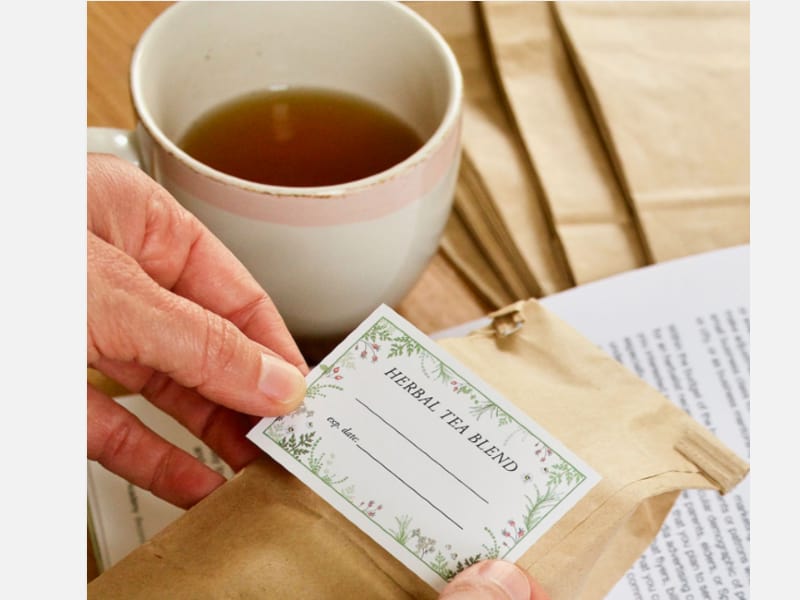

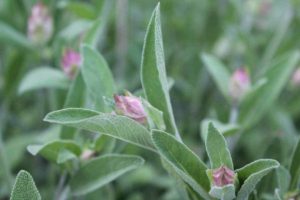
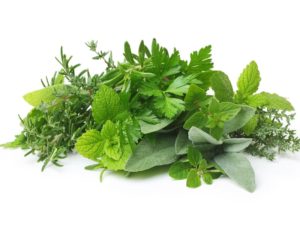
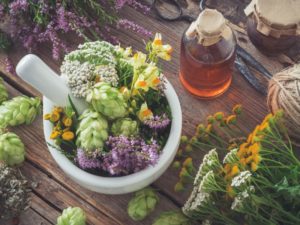
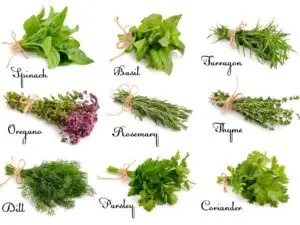
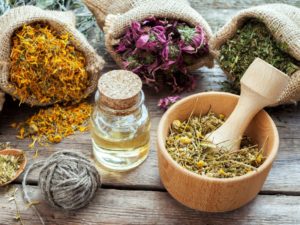
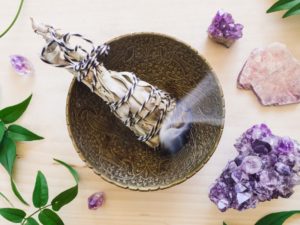
Continue your great work!! You are an inspiration
Flashing Content!! Great, keep up.
Thank you!! Loved your idea and aesthetic.